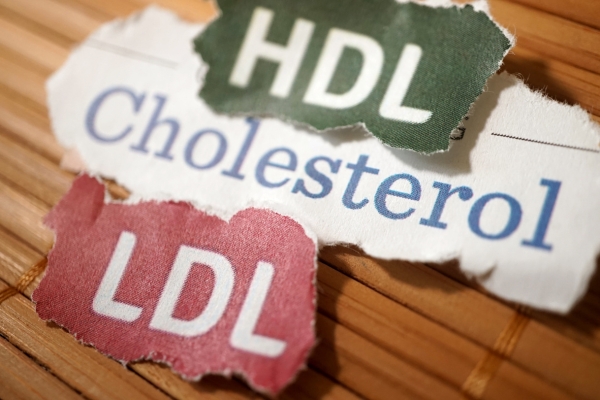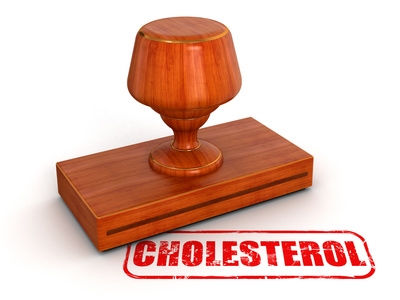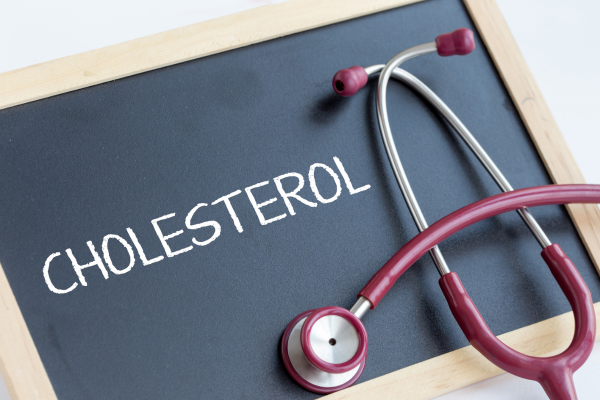You rarely hear or read anything good about cholesterol. For more than two decades now it has been blamed for causing heart disease, heart attacks, diabetes, obesity and more. Most people associate trans fats and saturated fats as the leading causes of high cholesterol.
Dozens of different medications have been developed for the purpose of lowering cholesterol levels in the blood.
In fact, lowering cholesterol has almost become an industry itself with countless doctors, nutritionists, exercise gurus and many others touting strategies for fighting high cholesterol.
Yet, despite all these ‘cures’ for high cholesterol, according to the U.S. Centers for Disease Control (CDC), heart disease continues to be far and above the leading cause of death in the U.S. Could it be that cholesterol is not the evil villain we thought it was?
Here is the Truth…
In order to answer that question we need to first understand cholesterol, where it comes from and how it impacts our bodies and metabolic systems. Cholesterol is a fat, or lipid. It is also a sterol, from which steroid hormones are made.
It flows through the body via the bloodstream, packaged into minuscule protein-covered particles called lipoproteins. Most people wrongly assume that all cholesterol is bad and that we should do everything possible to make it go away.
However, they fail to realize that cholesterol (both kinds) is in fact, very important to healthy body function.

Cholesterol Performs Three Main Functions:
• It helps make the outer coating of cells.
• It makes up the bile acids that work to digest food in the intestine.
• It allows the body to make Vitamin D and hormones, like estrogen in women and testosterone in men.
If it weren’t for cholesterol, none of these functions would take place, and we wouldn’t survive. Cholesterol is so important to the body that the liver produces it. Even if you ate a completely cholesterol-free diet, your body would still make the approximately 1,000 mg it needs to function properly.
Our metabolic systems can regulate the amount of cholesterol in the blood, producing more when your diet doesn’t provide adequate amounts. Other than medications and nutritional supplements, diet and exercise are used to lower cholesterol levels in the body. And when it comes to diets, reducing and eliminating fats from the diet is the number one strategy that people use to lower their cholesterol levels.
An Interesting Note on Saturated Fats
In particular, they strive to reduce or eliminate saturated fats and trans fats—both of which have been vilified by the so-called experts for years. But lumping these two fats together is a mistake because contrary to what you may have heard or read, saturated fats are not the evil monster some would have you believe.
In fact, saturated fats are as important to the body as other fats and are necessary for good health and proper metabolic function. Saturated fats occur in nature and are found mostly in animal sources of food such as meats. And while some trans fats are also found in meats, the majority of trans fats are produced during food processing through partial hydrogenation of saturated fats. A rapidly growing body of research is pointing to man-made trans fats as the leading culprit behind high rates of heart disease and death—not natural fats.
If you consider this for a moment, it only makes sense. Heart disease and obesity are essentially ‘first-world’ problems that plague modern societies. Our ancestors weren’t concerned about the types of fats they ate and problems such as heart disease and obesity were not at all widespread like they are today. But then again, they ate only fresh, whole foods—nothing processed, packaged or loaded with salt, sugar and artificial fats, ingredients and chemicals.
 The fact of the matter is that there is a growing body of research showing that all of the fats that occur in nature are essentially good for us. As an example, three groups of researchers have recently weighed data from all available large long-term studies that have tracked saturated-fat intake and heart attacks or strokes.
The fact of the matter is that there is a growing body of research showing that all of the fats that occur in nature are essentially good for us. As an example, three groups of researchers have recently weighed data from all available large long-term studies that have tracked saturated-fat intake and heart attacks or strokes.
All three found no association between saturated fat and heart attacks or strokes. People who consumed the highest levels of saturated fat had about the same rates of heart disease as people who consumed the least. As we look to our past to better understand ourselves today, we are realizing that ‘cholesterol’ is not the problem, nor is it the type of fat we consume that matters but rather the source.
The key factor is whether or not the fat is man-made or natural—that is what is most important. Man-made trans fats and hydrogenated oils, margarines and other products laden with artificial ingredients are the ones to be avoided—not the fats that occur in nature. So the secret to good health and healthy weight may not be in watching our cholesterol levels but rather, in eating more whole foods and natural fats while avoiding man-made trans fats commonly found in processed and packaged foods.
Cholesterol Isn’t The Real Killer….This Is!
You Can’t See It…But There’s an Invisible Civil War
Raging Inside Your Body That Can Go Undetected
for Months…EVEN Years!











